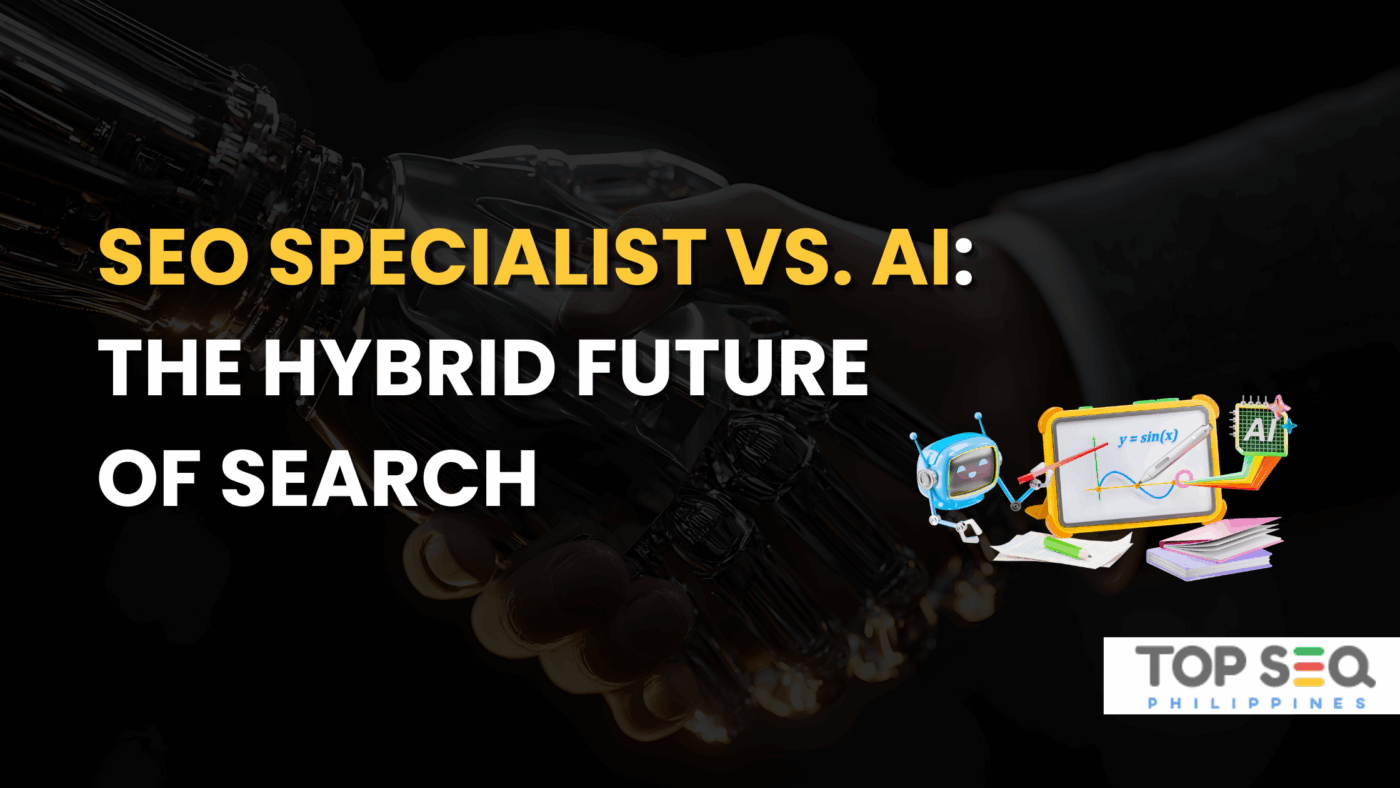The rise of generative Artificial Intelligence (AI) has sparked a pivotal debate in the digital marketing world: Can AI replace the human SEO specialist? The answer, for now, is a resounding no. AI has fundamentally changed the nature of the job, moving it away from repetitive tasks and firmly into the realm of strategic thinking, critical oversight, and unique human-centric content creation.
The future of search engine optimization isn’t about one replacing the other—it’s about a powerful hybrid approach where human expertise is amplified by algorithmic speed.
Where AI Excels: The Power of Automation and Scale
AI tools, such as ChatGPT, Semrush’s AI features, and various dedicated content optimizers, have become indispensable assistants. They excel in tasks requiring speed and analysis across massive datasets:
- Faster Data Analysis: AI can process millions of data points—from competitor rankings to user behavior—in minutes, providing actionable insights that would take a human weeks to gather manually.
- Automation of Tedious Tasks: AI streamlines the most time-consuming parts of SEO, including:
- Generating keyword clusters and content outlines.
- Drafting meta descriptions, title tags, and structured data (schema markup).
- Identifying basic technical SEO issues (e.g., broken links, slow pages) for human review.
- Content Scalability: AI allows content teams to scale production by creating first drafts or optimizing existing content briefs, enabling the human specialist to focus on refining, not writing from scratch.
Where Human Specialists Remain Indispensable
Despite AI’s capabilities, core aspects of SEO rely on skills that machines simply cannot replicate, especially as Google prioritizes E-E-A-T (Experience, Expertise, Authoritativeness, and Trustworthiness).
| Human Specialist Role | Why AI Cannot Replace It |
| Strategic Leadership | AI can execute a plan, but it cannot define the overall business goals, integrate SEO with branding, or react to major market shifts. This requires human judgment. |
| Context and Intent Analysis | Google rewards content that satisfies user intent. AI struggles with the subtle nuances, emotional cues, and cultural context needed to truly understand why a user is searching. |
| Unique Experience and Authority | AI is trained on historical data; it cannot provide original research, first-hand experience, or unique perspectives. The specialist infuses the content with the unique “human touch” that builds E-E-A-T. |
| Technical Implementation & Debugging | While AI identifies technical issues, the actual implementation (e.g., configuring complex server redirects, fixing advanced Core Web Vitals issues, or writing custom code) requires engineering expertise. |
| Ethical Oversight and Quality Control | AI can “hallucinate” or create content that is factually incorrect, repetitive, or even unintentionally plagiarized. The human specialist is the crucial fact-checker and quality gate. |
The Future: Human-Led, Agent-Powered
The future of a successful SEO strategy is a human-led, agent-powered team. The SEO specialist’s role has evolved from a doer of repetitive tasks to a “Content Engineer” and “AI Strategist.”
Specialists must now focus on:
- Prompt Engineering: Writing effective prompts to guide AI tools for maximum efficiency and quality output.
- Verification and Vetting: Rigorously fact-checking and editing AI-generated content to inject unique insights and ensure E-E-A-T.
- Strategy and Business Impact: Directing AI to focus on efforts that align with tangible business metrics like pipeline, conversions, and revenue, not just rankings.
AI is not a replacement; it is an amplifier. The SEO specialist who learns to harness AI effectively will be the one who dominates the search landscape moving forward.

